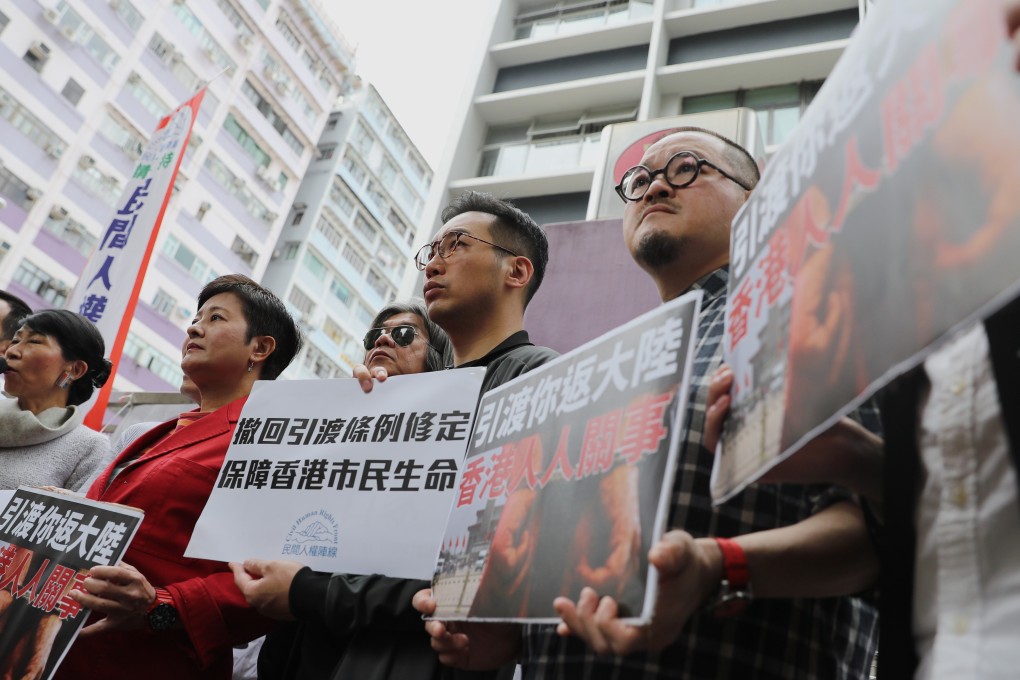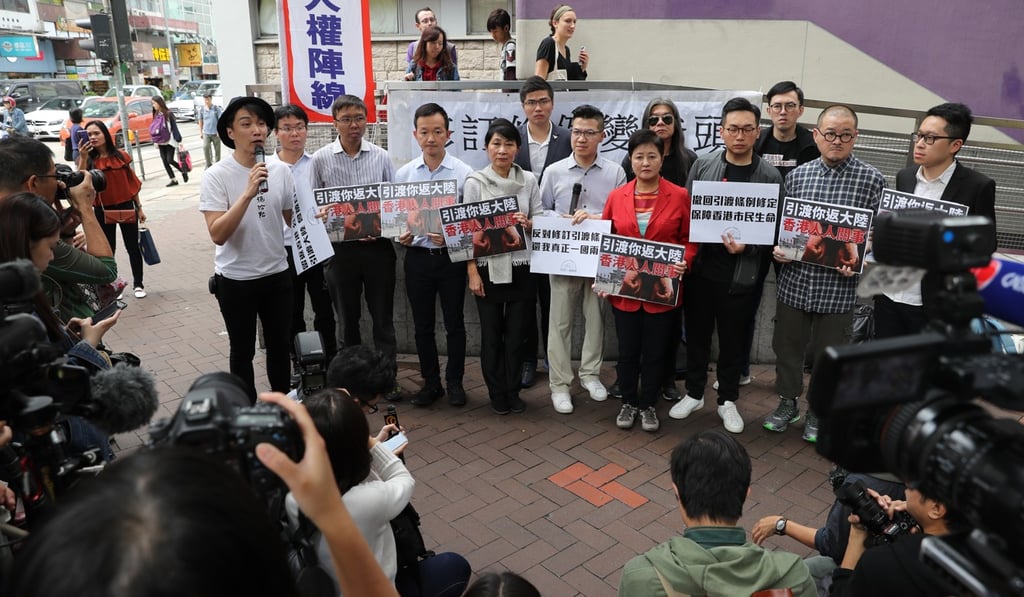Protests planned against proposal to hand fugitives to mainland China as resistance bolstered by Hong Kong’s business-sector lawmakers
- Pan-democrats announce two demonstrations against the proposal to hand over suspects to mainland China, Taiwan and Macau
- Group call on citizens to voice opposition to the plan before the period for public submission closes on Monday

Resistance to a Hong Kong government proposal to hand over fugitives to mainland China, Taiwan and Macau has gained momentum, with protests announced and doubts about the plan expressed by pro-business politicians.
A number of pro-establishment lawmakers who represent the business sector also expressed reservations about the plan. Several critics said they feared that local businessmen would break the law inadvertently in mainland China, where they said the tax system was too complicated.

The proposed amendments, revealed by Security Bureau in mid-February, would allow the transfer of fugitives to jurisdictions where the city lacks an extradition treaty, including Macau, Taiwan and mainland China.
Such requests would be handled on a case-by-case basis. The chief executive would issue a certificate to start the proceeding and the courts would have the final say on granting the arrest and eventual transfer.